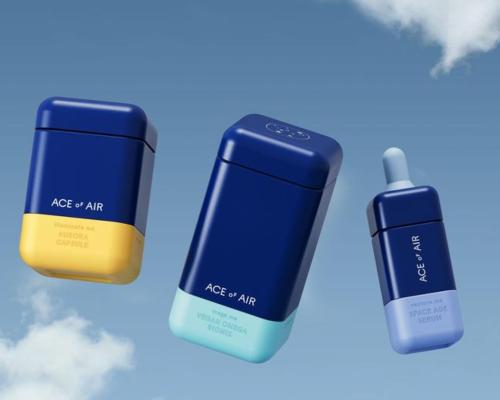13 Jul 2021
Sustainability: circular skincare brand launches with 'buy the product and borrow the packaging' model
BY Megan Whitby

Today’s consumers have high expectations for brands to tackle sustainability head-on.
In early 2021, a new US beauty and wellness brand named Ace of Air raised the bar for the industry by launching with a fully circular shared packaging model which operates with a Buy the Product and Borrow the Packaging scheme.
Ace of Air is co-founded by former Revlon CMO, Stephanie Stahl; supermodel, Petra Nemcova; and founder of merchant banking firm, Three Ocean Partners, David Knowlton.
It launched with eight vegan and cruelty-free skincare and supplement products, priced between US$35-US$85 (€29-€71, £25-£61), in packaging capable of at least 100 uses made from steel, ceramic and Fairtrade rubber.
When purchasing, consumers pay a non-refundable US$2 (€2, £1) fee to rent packaging on top of the products. They must then return their empty containers no later than six months after their order, so Ace of Air can clean, re-fill and re-use them for future orders, or incur a fee of US$25 (€21, £18).
Products are also shipped in a reusable Boomerang Box – which adds a further US$3 (€2, £2) to the bill – which must be returned in 30 days or they’re charged US$20 (€17, £14).
Ultimately, the company is on a mission to transform the beauty industry’s response to the accelerating environmental crisis and encourage consumers to take responsibility for the full life of packaging.
“In 2017, we began creating an uplifting, inclusive brand designed to have a positive impact on people and our planet,” comments Stahl, Ace of Air CEO and co-founder.
“We did this because our planet needs a beauty and wellness brand that fundamentally changes what and how we consume.”
The renting model provides potential inspiration for professional beauty and skincare brands wishing to seriously integrate sustainability.
And with major brands such as ESPA recently getting on board with product return and recycle schemes, it seems only a matter of time until these models become standard practice.
Such models allow brands not only to help consumers build awareness of responsible consumption but also helps to distinguish themselves in a saturated market where green-washing is rife.
In future, spa operators could also run similar product return and recycle schemes through their retail boutiques.
To read the whole story, head to the most recent issue of Spa Business.
Close Window